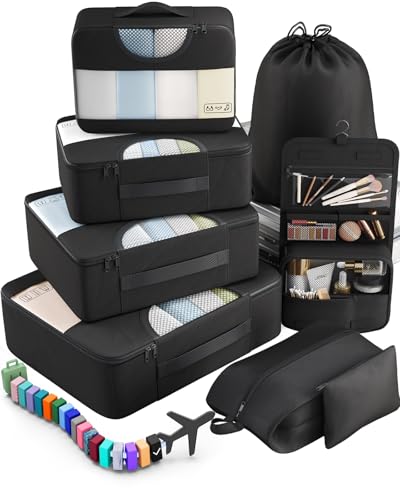In Pakistan, they use Type C and D power plugs and outlets. The voltage is 230V, and the frequency is 50Hz.
So, you’ll need a travel adapter in Pakistan. Their plugs and outlets are different from the Type A and B ones we use back in the States.
Quick Overview of the Plugs in Pakistan:
- Plug type in Pakistan: C and D
- Standard voltage: 230V
- Frequency: 50Hz
- Need a travel adapter? Yes, you do need a travel adapter
- Need a voltage converter? Some gadgets will probably need it
- Recommended plug adapter: Vintar Universal Travel Adapter Kit
All data on this page is checked against official local regulations, IEC international standards, and feedback from travelers who’ve recently visited this destination.
The Only Travel Adapter You’ll Need in Pakistan
Imagine landing in Pakistan, ready to charge your phone, and—bam—your plug doesn’t fit. Now what? We don’t sell travel adapters, but we’ve tested and researched the best one for Pakistan, based on voltage, safety, and reliability. No stress, no dead battery—just plug in and go. Here’s our top pick:
Recommended Travel Plug Adapter
by 1,000+ travelers on Amazon
If you’re already traveling or have arrived at your destination without a power adapter, don’t worry. You can usually pick one up locally. Still, having one with you from the start is the easiest way to avoid delays or surprises.
Travelers going through Pakistan also tend to visit India, Iran, and Afghanistan. The plug types can differ quite a bit, so best to check in advance.
Power Outlets in Pakistan
In Pakistan, they use Type C and D power plugs and outlets.
Type C

Type C outlets have two round prongs and no grounding pin. Type E and F plugs usually fit too, but grounded plugs will need an adapter.
Type D

Type D outlets have three large round prongs in a triangular layout and typically only accept Type D plugs, although Type C plugs might fit loosely and are not recommended for safe use.
Do You Need a Voltage Converter?
If the voltage in Pakistan doesn’t align with the 120V used in the U.S., you’ll need a converter to safely use your electronics.
Always make sure to check the input voltage label on your device before using it overseas. If it states “100-240V, 50/60 Hz”, your device supports multiple power systems and won’t need a converter. Most phones, laptops, tablets, and personal care electronics fall into this category.

Which Travel Devices May Need a Converter?
Want peace of mind while traveling? These top-rated voltage converters are a safe bet.
| Device | Need Converter? | Notes |
|---|---|---|
| Phone | ❌ No (usually) | Most modern phone chargers are dual voltage (100–240V) |
| Laptop | ❌ No (usually) | Check the power brick label for 100–240V |
| Hairdryer | ✅ Yes (often) | High wattage; many models are not dual voltage |
| Electric toothbrush | ⚠️ Check voltage | Some models are 110V only |
| Camera / DSLR | ❌ No (usually) | Most chargers are dual voltage |
| Power bank | ❌ No | Charges via USB, adapter is enough |
| Electric shaver / trimmer | ⚠️ Check voltage | Older or cheaper models may not support 230V |
| Tablet / iPad | ❌ No | All models are dual voltage |
| Portable fan | ✅ Yes (sometimes) | Many models are not compatible with 230V |
| Game console | ⚠️ Check voltage | Newer consoles like PS5 and Xbox are often dual voltage — check to be sure |
| Bluetooth speaker | ❌ No (usually) | Charges via USB |
| E-reader (Kindle, etc.) | ❌ No | USB charging only, no converter needed |
Top Travel Essentials to Pack
Not everything that’s useful takes up space. These compact items can really pull their weight when you’re on the go.
Digital Luggage Scale
Packing Cubes
Power Bank
More About Pakistan
Pakistan is a big, bold country with everything from deserts to glaciers. You’ve got the coastline of Karachi, the mountains of the north, the history of Punjab, and the wild frontier of Khyber Pakhtunkhwa.
What surprises most people? The hospitality. Locals will invite you for tea, ask about your story, and help you navigate cities big and small. It’s warm, curious, and deeply rooted in tradition.
It’s not always the easiest place to travel—logistics can be tricky—but if you’re up for a bit of adventure, the reward is massive. Pakistan is raw, real, and full of stories waiting to be discovered.
Top places to visit in Pakistan: Islamabad, Lahore, Karachi, Peshawar, Quetta, Multan, Faisalabad, Murree, Skardu, and Hunza Valley.




